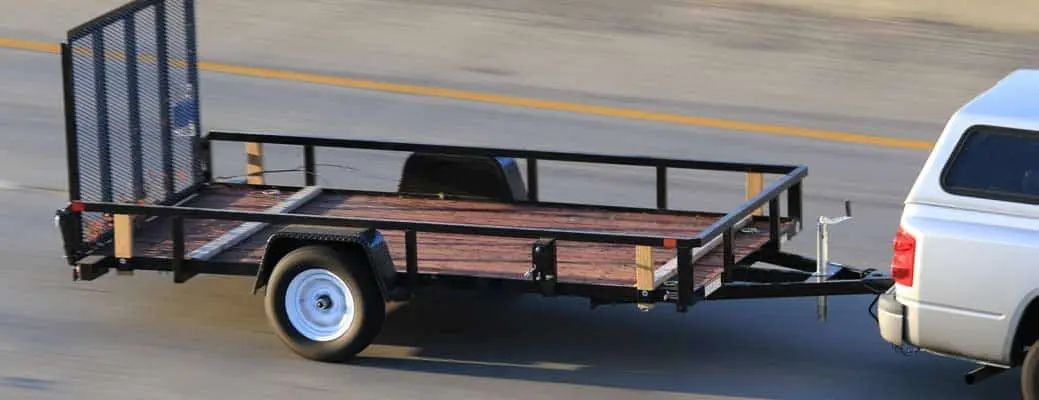Utility Trailer Insurance: Necessary or Not?


The short answer: It depends.
A utility trailer typically has raised sides, an open top and a gate on the back. You might use one of these non-enclosed trailers to haul landscaping equipment, farm machinery, bulky items or even just brush, recycling or refuse.
Since a utility trailer isn’t motorized, you generally aren’t required to cover it with a separate insurance policy. Instead, the liability coverage you already have for your tow vehicle may protect you in the event you’re liable for injuries or damages while pulling the trailer.
However, there are certain circumstances that might justify additional insurance for your utility trailer. Here, we outline key considerations and look at your options.
Since utility trailer insurance isn’t generally required by law, you may not have thought about adding coverage for it. Liability coverage on the vehicle you’re using to tow the trailer is the most crucial coverage to ensure you’re protected in the event you’re liable for an accident. But there’s more to the story.
Although most auto insurance policies provide an extension of liability coverage while you’re towing a utility trailer, liability insurance does not cover damage to the items you’re hauling or to the trailer itself. Additionally, without proper insurance, an auto policy may not cover damage to the trailer, or its contents, for certain types of losses, such as equipment theft or severe weather damage. Having coverage specifically for your utility trailer means that your trailer will be better protected against damage. You may even be able to insure the contents of your trailer.
Some insurance providers, like Farm Bureau Financial Services, offer benefits like automatic coverage for newly purchased trailers when you already have coverage in place on an existing trailer. That means you’re covered in the unfortunate event of getting in an accident right after acquiring your new trailer.
You might want to consider two types insurance coverage for your utility trailer. Collision coverage pays for damage incurred to your trailer in the event of an accident with another vehicle or object, such as a fender bender with another motorist, an impact with infrastructure or a rollover.
Comprehensive coverage pays for accidental damage incurred from other unforeseen circumstances other than a collision. Even if your utility trailer is protected while stowed at your home or place of business, vandalism or theft can occur when you’re at a job site. Plus, severe weather, like tornadoes, and natural disasters, like wildfires, can also wreak havoc on valuable equipment. For those unfortunate events, comprehensive coverage has your back.
If you only use your trailer to lug around brush, recycling or trash, it’s likely you won’t care about protecting what you haul with your utility trailer. But if you regularly tow landscaping equipment, farm machinery, an ATV or other valuable gear, you’ll want coverage to replace it in the event of damage. The type of insurance you’ll need will depend on what you’re hauling.
A Farm Bureau agent can help you figure out the right policy to help give you peace of mind for all of your important possessions, whether for work or for play. Contact your local Farm Bureau agent to make sure you have the coverage you need.